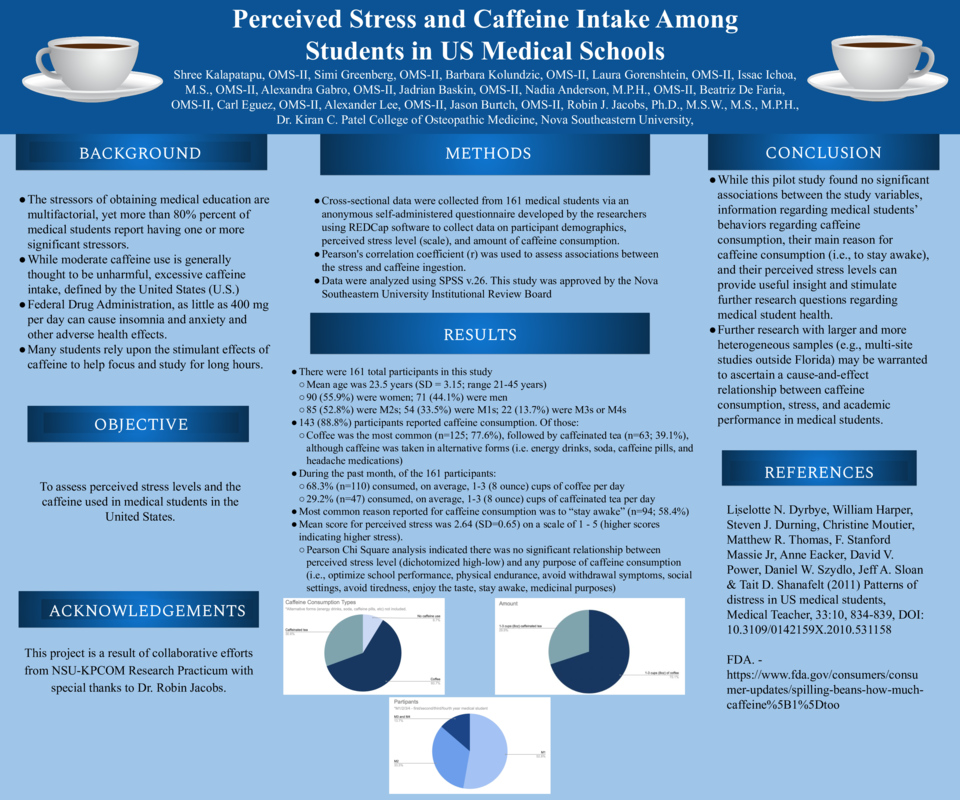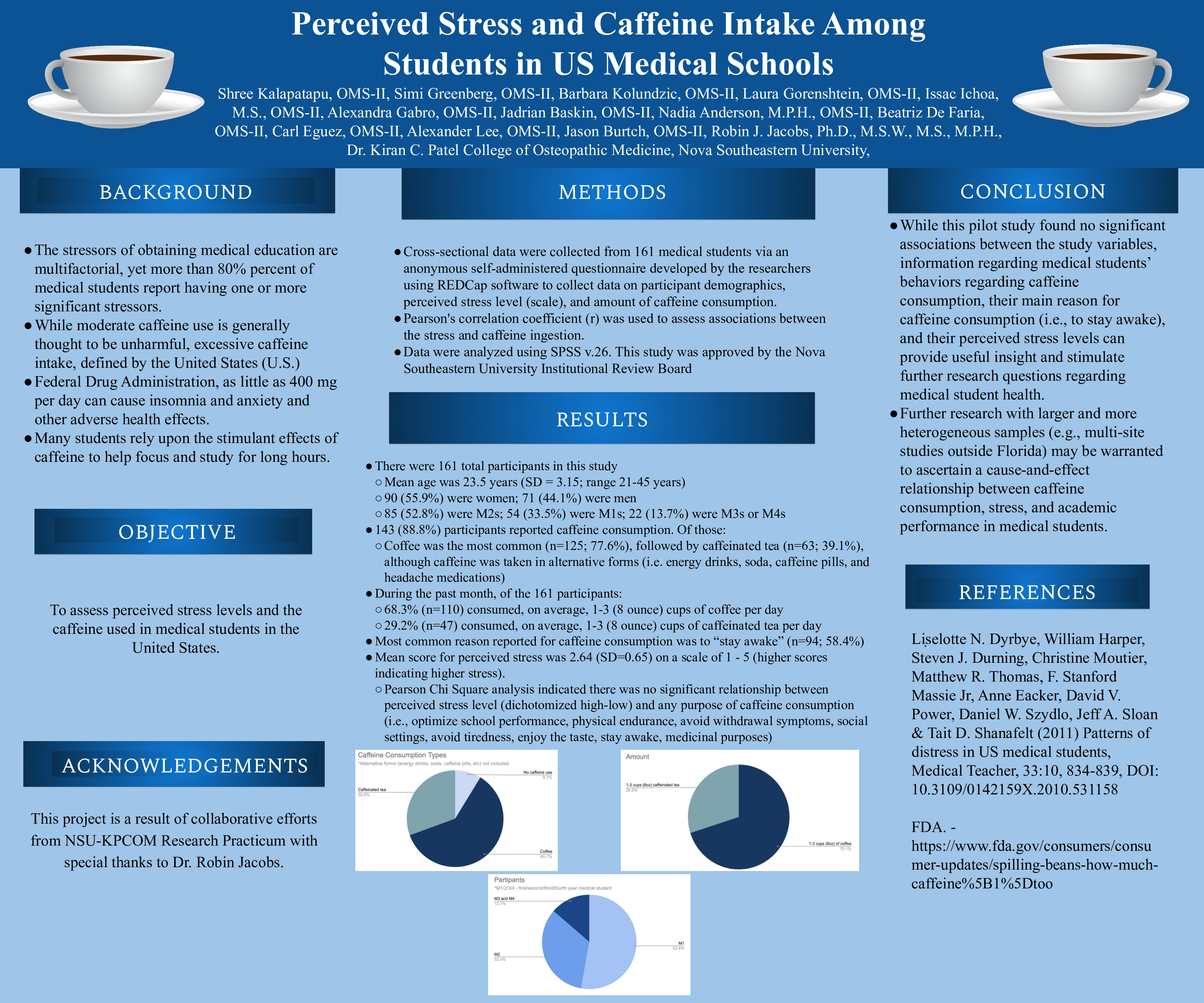Perceived Stress and Caffeine Intake Among Students in U.S. Medical Schools.
Dr. Kiran C. Patel College of Osteopathic Medicine, Nova Southeastern University, Fort Lauderdale, USA
Shree Kalapatapu, Simi Greenberg, Medical StudentDr. Kiran C. Patel College of Osteopathic Medicine, Nova Southeastern University, Fort Lauderdale, USA
Simi Greenberg, Barbara Kolundzic, Medical StudentDr. Kiran C. Patel College of Osteopathic Medicine, Nova Southeastern University, Fort Lauderdale, USA
Barbara Kolundzic, Laura GorenshteinDr. Kiran C. Patel College of Osteopathic Medicine, Nova Southeastern University, Fort Lauderdale, USA
Laura Gorenshtein, Issac Ichoa , Medical StudentOsteopathic Medicine, Nova Southeastern University Dr. Kiran C. Patel College of Osteopathic Medicine, Fort Lauderdale , USA
Issac Ichoa , Alexandra Gabro , Medical StudentOsteopathic Medicine, Nova Southeastern University Dr. Kiran C. Patel College of Osteopathic Medicine, Fort Lauderdale , USA
Alexandra Gabro , Jadrian BaskinDr. Kiran C. Patel College of Osteopathic Medicine, Nova Southeastern University, Fort Lauderdale, USA
Jadrian Baskin, Nadia AndersonDr. Kiran C. Patel College of Osteopathic Medicine, Nova Southeastern University, Fort Lauderdale, USA
Nadia Anderson, Beatriz De Faria, Medical StudentDr. Kiran C. Patel College of Osteopathic Medicine, Nova Southeastern University, Fort Lauderdale, USA
Beatriz De Faria, Carl Eguez, Medical StudentDr. Kiran C. Patel College of Osteopathic Medicine, Nova Southeastern University, Fort Lauderdale, USA
Carl Eguez, Alexander LeeDr. Kiran C. Patel College of Osteopathic Medicine, Nova Southeastern University, Fort Lauderdale, USA
Alexander Lee, Jason Burtch, Medical StudentDr. Kiran C. Patel College of Osteopathic Medicine, Nova Southeastern University, Fort Lauderdale, USA
Jason Burtch, Robin J. Jacobs, Professor, MPH, PhDMedical and Behavioral Research; Health Informatics; Medical Education, Nova Southeastern University, Fort Lauderdale, USA
Robin J. Jacobs




